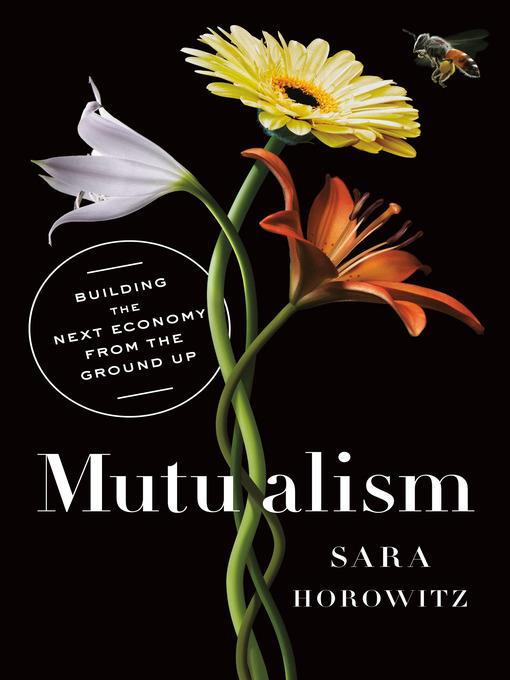
Mutualism
Building the Next Economy from the Ground Up
کتاب های مرتبط
- اطلاعات
- نقد و بررسی
- دیدگاه کاربران
نقد و بررسی

January 1, 2021
A provocative call for a third path, somewhere between capitalism and socialism, for the workers of today. The founder of the Freelance Union and former board chair of the New York Federal Reserve, Horowitz opens with an evocation of Charlie Chaplin's harried assembly-line worker in Modern Times. However, the factory is not the arena of the modern labor struggle. Instead, it's a workplace populated by "independent workers engaged in nontraditional employment relationships," whether life coaches or editors or Lyft drivers. Within this decade, writes the author, half of the American workforce will be made up of these independent workers, who lack the social safety net that traditional workplaces and the government used to provide. The collapse of that net, she writes evenhandedly, is the result of hostility from the political right and neglect from a left that abandoned its labor base. Building on the union-building ideals of the early labor movements and French syndicalist Pierre-Joseph Proudhon's notions of mutual aid, Horowitz proposes that if such a safety net is to be woven anew, it will have to be done by the workers themselves through building "mutualism" via organizations that "have a social purpose: to solve a social problem for a community," but that at the same time have a well-formed business model and structures of governance that will outlast individual founders. The author's grandmother, an immigrant labor rights activist, was vice president of the International Ladies' Garment Workers' Union a century ago. That organization, Horowitz writes, founded health care clinics, built cooperative housing centers, organized credit unions, and accomplished many other projects that later fell into the hands of the state and, now nonexistent or in disrepair, have to be remade or "built from scratch." Government has a role in supporting mutualist organizations through reforms in the tax code and other regulations, but the institutions themselves must be worker-built--and built to last. Rules for radicals, with a solid vision of a self-directed future that labor activists will find promising.
COPYRIGHT(2021) Kirkus Reviews, ALL RIGHTS RESERVED.

January 11, 2021
Horowitz (The Freelancer’s Bible), a lawyer and founder of the Freelancers Union, focuses on the collective good in this expansive treatise on “economic engines with a social (rather than a profit) purpose that exist for a mutual good.” Mutualism, Horowitz writes, is neither capitalism nor socialism, but is focused on “building a society based on reciprocal economic obligations between individuals and between institutions.” Horowitz explores the various ways humans have historically come together for a mutual purpose, including the waterschappen of 13th-century Holland (a group focused on maintaining dams, dikes, and watermills) and Benjamin Franklin’s Bucket Brigade, “one of the first all-volunteer fire departments in America.” Where government and business have failed to create a safety net for American workers, Horowitz writes, mutualism can build the health clinics, childcare centers, lending circles, mutual insurance, and affordable cooperative housing that workers urgently need. She calls for tax breaks for corporations, financial institutions, and individuals that “donate to or invest in mutualism,” and encourages “patient capital” that won’t “make anyone obscenely rich over a short period of time.” The result is an eye-opening survey and a stirring call for change.

January 1, 2021
Granddaughter of Israel Horowitz, who helped build the consequential International Ladies' Garment Workers' Union, author Horowitz--herself a MacArthur "genius," former chair of the New York Fed's board of directors, and founder of the 500,000-member Freelancers Union--first defines what mutualist organizations are: "economic engines with a social (rather than a profit) purpose that exist for a mutual good." From groups as modest as a neighborhood babysitting co-op or a church congregation, and as ambitious as a credit union or, well, a national freelancers union, mutualist organizations have special value in a community whose citizens are ever more estranged from institutions, and whose workers are fast becoming self-employed contractors unmoored from companies that would otherwise offer health insurance, paid vacation, and a modicum of job security. Mutualist organizations are created not from the top down--say, under federal direction--but rather from specific, grass-roots needs. The attentive reader will find enormous potential in these old but resilient systems, and self-empowerment if they're willing first to seek local solutions and then to put some skin in the game.
COPYRIGHT(2021) Booklist, ALL RIGHTS RESERVED.

























دیدگاه کاربران